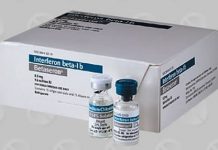Results from short-term (12 weeks) placebo-controlled trials indicate that patients with Alzheimer’s disease who take anti-psychotics are at increased risk of death. To address this concern, the Food and Drug Administration (FDA) in June 2016 required that all anti-psychotic drug labels include a “black box” warning, alerting physicians and patients that use of such drugs in the elderly is associated with stroke and death. However, until now there have been no data from long-term, placebo-controlled trials to support these concerns.
Anti-psychotics For Alzheimer’s Patients
As many as 60 percent of patients with dementia who live in the community and more than 80 percent who live in nursing facilities experience neuropsychiatric symptoms. These include agitation, wandering, repetitive vocalizations, hallucinations, and delusions. None of the anti-psychotics currently on the market are approved by the FDA for use in patients with Alzheimer’s disease or other dementias. However, physicians frequently prescribe them because these symptoms are often difficult to manage, and the drugs do help a minority of such patients.
Anti-psychotics and Risk of Death
The findings of this most recent study, published in the online The Lancet Neurology, note that patients with Alzheimer’s who take anti-psychotics may be at increased long-term risk for death. The study followed 128 patients with Alzheimer’s who resided in long-term care facilities. The patients were divided into two groups and for a 12-month period received either anti-psychotics (the most common drugs used were risperidone and haloperidol; also prescribed were thioridazine, chlorpromazine, and trifluoperazine) or placebo.
The patients who were administered antipsychotics had a significantly lower chance of surviving at 24 to 54 months after treatment compared with those who took placebo. At 24 months after the treatment period, the probability of survival among those who took anti-psychotics was 46 percent compared with 71 percent among those who took placebo; at 36 months, the figures were 30 percent versus 59 percent, respectively.
The authors note that given these findings, which support previous research, there is a need for doctors to prescribe less harmful drugs for the long-term treatment of neuropsychiatric symptoms in patients who have Alzheimer’s disease and other forms of dementia.
Alternatives to Anti-psychotics
One alternative to anti-psychotics to manage neuropsychiatric symptoms in Alzheimer’s patients may be antidepressants. In a recent Canadian study, researchers found that the antidepressant citalopram was as effective as the anti-psychotic risperidone in the treatment of neuropsychiatric symptoms in patients with dementia. A non-drug approach, the use of acupressure, was found to be effective in another recent study. Patients who were treated with acupressure for 15 minutes, twice a day, five days a week for four weeks were significantly less agitated than patients who did not receive the treatment. Other non-drug approaches to managing neuropsychiatric symptoms include music therapy, massage, and Snoezelen rooms.











